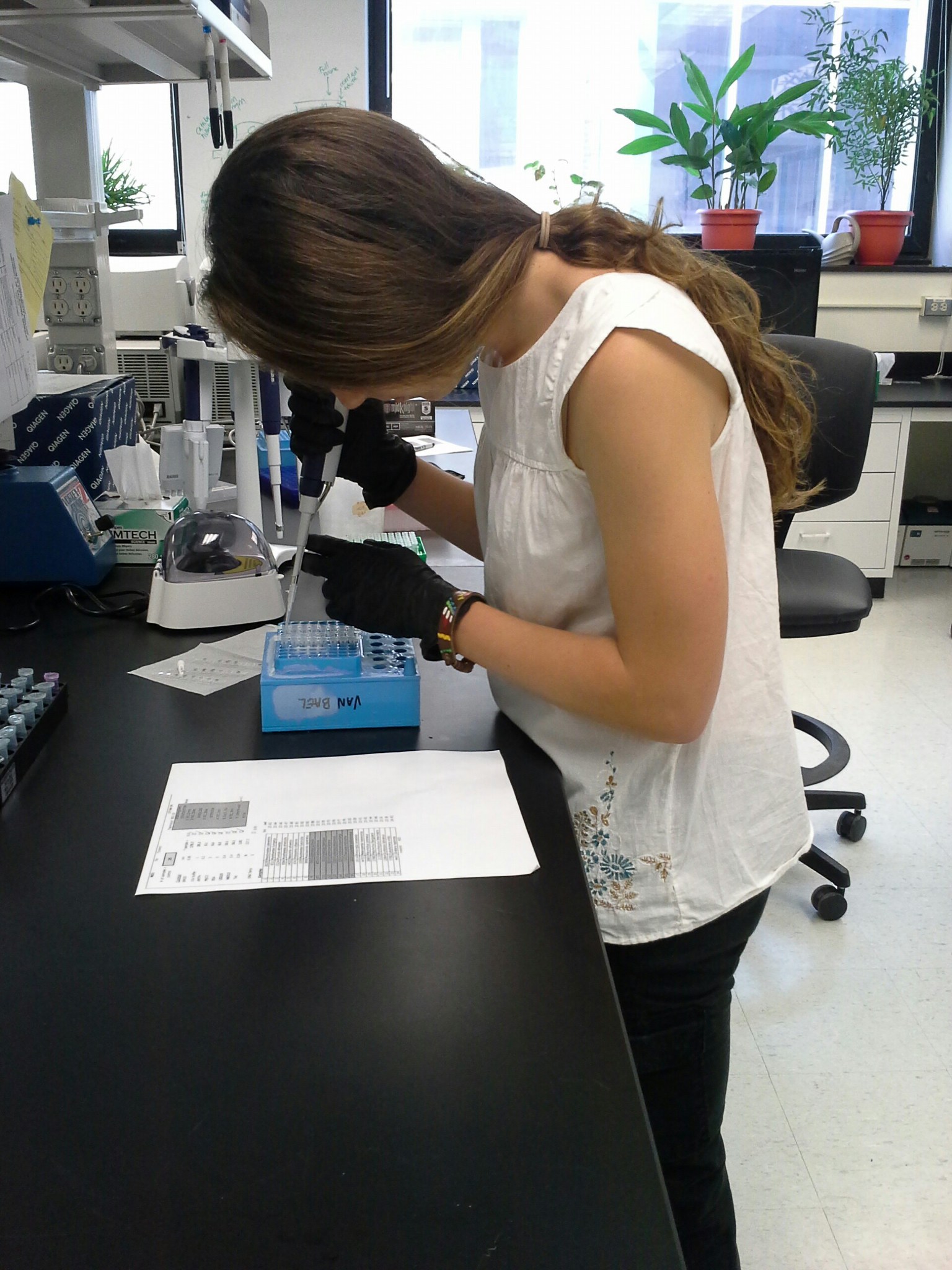
It’s been eight weeks since I returned to the lab with the intent to refresh my molecular lab skills and delve into my honors thesis. Now, there are about three weeks until classes resume for the fall and so in this post I will reflect on how I am progressing through the learning objectives I set for myself at the beginning of the summer. Here’s a somewhat condensed version of the goals I enumerated earlier this summer:
- Build background knowledge on inference methods of demographic history from population genetic data and on the cotingas in the genera Lipaugus and Tijuca.
- Learn the purpose of different phylogeographic analyses and how to execute those relevant to my project.
- Improve my ability to communicate scientific information by participating in weekly lab meetings and presenting a poster at Evolution, a research conference for my field.
- Improve my networking skills by participating in the Undergraduate Diversity at Evolution program and beginning correspondence with potential graduate advisors.
- Continue focusing my research interests, drawing on my overall experience in research in ecology and evolutionary biology thus far, in order to determine what graduate programs and other research opportunities I will apply for in the coming year.
This list of objectives is less like a to-do list of tasks I intend to check off and more like a projection of the skills (inference methods, phylogenetic and population genetic analysis, networking, communication) I would like to ultimately leave my undergraduate education with. While I believe I have at least addressed each objective, I plan on continuing to build on these skills throughout the fall since the work I am doing this summer will continue to be a primary focus of mine throughout my senior year.
I spent the first few weeks of the summer focusing on population genetics theory that underlies demographic analyses, though decided to take a hiatus in order to read more into methods of phylogenetic inference. It has worked out well that a recent graduate from our lab, Liz, now pursuing a master’s degree through the ecology and evolutionary biology 4+1 program, returned to begin work on a phylogeographic project of her own a month or so ago. This was great timing. Since then Liz and I have been able to work through related readings on phylogenetic inference in the afternoons and discuss points of confusion.
In addition, Andres, a post-doctoral researcher in the lab, spent the mornings of a few weeks in July giving Liz and me lessons on data analysis. Andres oversees work for the species level Tyranni phylogeny project our lab is collaborating on with other institutions across the country. Andres is also working closely with both Liz and I on our independent projects. These lessons have focused on implementing phylogenetic inference methods using current software and have been taking place at a whiteboard in our lab, interspersed with some molecular work for the Tyranni project. I am so excited about what I have learned in such a short time!
Throughout July I learned to work with a number of common file types that store sequence data, use a maximum likelihood analysis to choose a model of sequence evolution for different genes, and infer gene trees and species trees using maximum likelihood and Bayesian statistical analyses implemented locally through various software packages as well as on a remote cluster. Andres has led me through these practical exercises while also suggesting corresponding readings that clarify the purposes, pros, and cons of various inference methods. Furthermore, I now have the opportunity to work with data for the genera I will be conducting my honors thesis project on, Lipaugus and Tijuca. Specifically, I have a good sample of sequences for 10 different genes. In addition, UCE sequences, from next generation sequencing of the whole genome, for the Lipaugus samples will be available for analysis soon. I am excited that I will have the opportunity to incorporate more traditional demographic analyses of a mitochondrial gene, as well as innovative methods of whole genome analysis into my project.
Andres’s workshop, of sorts, has allowed me to of delve further into the world of phylogenetic inference and progress on my first three learning objectives simultaneously since there is a lot of overlap of theory and foundational ideas between population genetics, phylogeography, and phylogenetics. In addition, I have the opportunity to discuss questions and concerns with both Liz and Andres. As suggested by my last blog about Evolution, I have also had great opportunities to network this summer and further develop my research interests while exposed to a greater variety than ever before. Overall this summer I have been able to develop more technical skills in data analysis and also share my current understanding of such methods and interest in further developing that understanding with potential graduate school advisors.
While I did not necessarily set up a rigorous system for monitoring my progression through my objectives, a way I am constantly able to address my progress is by reading and then rereading different scientific journal articles relevant to both my project and other interests within our lab. For example, I’ve recently reread “Target capture and massively parallel sequencing of ultraconserved elements (UCEs) for comparative studies at shallow evolutionary time scales” (Smith et al. 2014). I led a discussion on this article at a lab meeting last fall. At that time I was overwhelmed by the title of the paper alone. A few weeks ago though, not only was I able to make it through whole pages without stopping to look up words or methods, I was able to appreciate the paper’s relevance towards my project. In addition, I am constantly taking on as well as being allocated more responsibility in making decisions about lab work and the next steps in my project.
